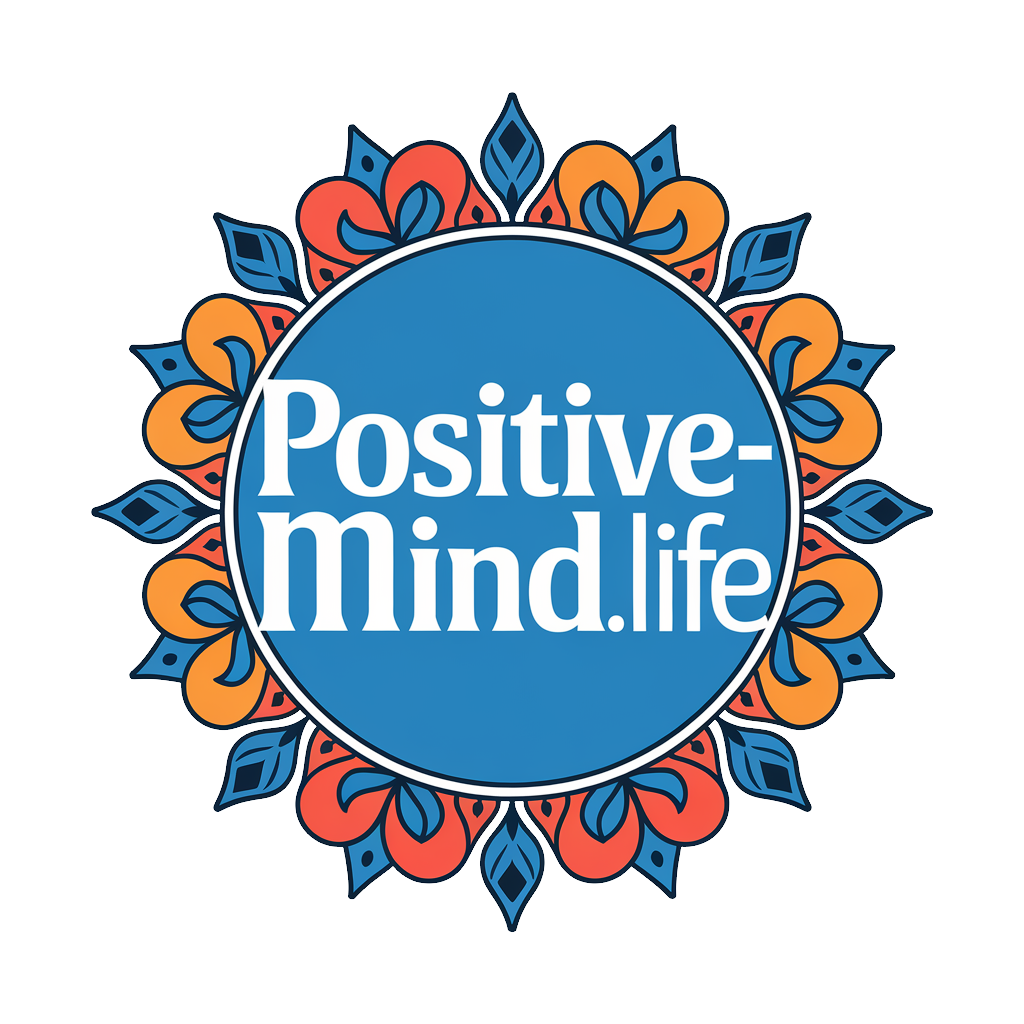Feel Happier Instantly With These Science-Backed Tips!
You can uplift your mood instantly with some effective, science-backed strategies. Start by practicing gratitude; jot down your blessings to shift your focus and enhance mindfulness. Engaging in physical activity releases endorphins, which help stabilize your emotional state. Strengthen social connections by spending time with friends or volunteering, as these relationships foster a sense of belonging and happiness. Additionally, prioritize sleep hygiene to improve your overall well-being. Consistent, restorative sleep sets the foundation for a positive mindset. Explore further choices and techniques that can enhance your happiness even more.
Key Takeaways
- Practice gratitude daily by journaling your blessings to enhance positivity and emotional well-being.
- Engage in physical activity to boost endorphins, leading to improved mood and emotional resilience.
- Foster social connections by spending quality time with friends to reduce feelings of isolation and enhance happiness.
- Volunteer together with others to build meaningful relationships and increase life satisfaction through shared experiences.
- Prioritize sleep hygiene by establishing a consistent bedtime routine for better sleep quality and overall happiness.
Practice Gratitude Daily
Practicing gratitude daily can significantly enhance your overall happiness. Research supports that engaging in gratitude journaling, where you jot down things you’re thankful for, can shift your focus from negativity to positivity. This simple act rewires your brain, fostering an optimistic mindset that encourages resilience in the face of challenges.
By establishing thankfulness rituals, you create a routine that reinforces this positive habit. Whether it’s a morning reflection or an evening recap, these rituals encourage you to pause and appreciate the small joys in life. A study published in the Journal of Personality and Social Psychology found that participants who practiced gratitude reported higher levels of life satisfaction, improved emotional well-being, and even better physical health.
The transformative power of gratitude lies in its ability to cultivate mindfulness. As you regularly acknowledge the good in your life, you become more attuned to your surroundings and relationships, fostering deeper connections. This intentional practice not only elevates your mood but also enhances your overall quality of life. So, take a moment each day to reflect on your blessings; it’s a powerful tool for happiness that’s entirely within your control.
Engage in Physical Activity
Engaging in physical activity significantly boosts your endorphin levels, which can lead to an immediate uplift in mood. Regular exercise not only stabilizes your emotional state over time but also fosters social connections that enhance your overall well-being. By incorporating movement into your routine, you create a powerful strategy for lasting happiness.
Boosts Endorphin Levels
When you get your body moving, you’re not just burning calories; you’re also triggering a powerful chemical response that boosts your endorphin levels. This phenomenon, often referred to as the “runner’s high,” is a direct result of endorphin release during physical activity. These neuropeptides act as natural painkillers, but their benefits extend far beyond mere analgesia.
Engaging in regular exercise fosters a significant increase in the frequency and intensity of endorphin release, which can lead to a heightened sense of well-being and happiness. Empirical studies indicate that individuals who maintain an active lifestyle report lower levels of stress and anxiety, showcasing the profound endorphin benefits associated with consistent physical activity.
Moreover, the relationship between exercise and endorphins is not merely anecdotal; it’s backed by a substantial body of research demonstrating that even moderate exercise can elevate mood and enhance cognitive function. By understanding this biochemical interplay, you can harness the power of movement to cultivate a more resilient and joyful state of mind. So, the next time you lace up your sneakers, remember: you’re not just exercising; you’re engineering your happiness through endorphin release.
Improves Mood Stability
Physical activity serves as a powerful stabilizer for mood, offering benefits that extend beyond immediate pleasure. Engaging in regular exercise enhances your brain’s neurochemical balance, which is crucial for effective mood regulation strategies. When you work out, your body releases neurotransmitters like serotonin and dopamine, which play significant roles in stabilizing emotions and reducing anxiety.
Moreover, physical activity contributes to emotional resilience training by teaching you to cope with stressors more effectively. The discipline and challenges faced during workouts foster a mindset that can adapt to life’s unpredictability. This adaptive capacity is essential for maintaining equilibrium in your emotional state, allowing you to navigate fluctuations with greater ease.
Incorporating various forms of exercise—whether it’s walking, cycling, or strength training—can be tailored to your preferences, ensuring sustainability. Research consistently shows that those who engage in regular physical activity report fewer mood swings and enhanced overall emotional well-being. By making exercise a priority, you’re not just seeking a temporary high; you’re building a robust foundation for lasting mood stability. Ultimately, the commitment to physical activity empowers you to take charge of your emotional health, transforming challenges into opportunities for growth.
Enhances Social Connections
Participating in physical activities can significantly enhance your social connections, creating a network of relationships that supports both your emotional and physical well-being. Engaging in sports, group classes, or even casual outdoor activities fosters shared experiences, which are vital for building rapport and trust among individuals. These shared moments provide a fertile ground for mutual support, allowing you to develop deeper connections with others.
Studies indicate that people who regularly participate in team sports or group fitness activities report higher levels of social satisfaction. The act of working together towards a common goal promotes a sense of belonging and camaraderie. As you interact with others in these settings, you’re not just improving your physical health; you’re also cultivating a community that can offer emotional reinforcement in times of need.
Moreover, the interactions during physical activities often lead to meaningful conversations and friendships that extend beyond the gym or field. By prioritizing physical engagement, you’re not just enhancing your health; you’re strategically investing in your social capital, which can lead to a more fulfilling and happier life overall. Embrace these opportunities, and watch your social network flourish.
Connect With Nature
Connecting with nature has profound effects on your mental well-being, often leading to an immediate boost in happiness. Engaging in nature therapy can significantly reduce stress levels and enhance your mood. Research indicates that exposure to natural environments lowers cortisol, the stress hormone, promoting a sense of calm and tranquility.
When you practice outdoor meditation, you tap into the restorative powers of nature. This practice encourages mindfulness, allowing you to immerse yourself fully in your surroundings. By focusing on the sights, sounds, and smells of the outdoors, you cultivate a heightened sense of awareness and appreciation for the present moment. Empirical studies show that even short walks in green spaces can improve your cognitive function and emotional resilience.
Moreover, connecting with nature encourages physical activity, which is intrinsically linked to mental health. The act of walking, hiking, or simply sitting in a park not only invigorates your body but also stimulates the release of endorphins, those feel-good chemicals that enhance your overall sense of happiness. Therefore, making a conscious effort to spend time outside can be a powerful strategy in your pursuit of emotional well-being.
Foster Social Connections
Building strong friendships significantly boosts your happiness by providing emotional support and a sense of belonging. Engaging in volunteer work or community activities not only helps you connect with others but also fosters a shared sense of purpose. By prioritizing social connections, you can enhance your overall well-being and create lasting joy in your life.
Importance of Friendships
Friendships play a crucial role in enhancing overall well-being, often serving as a buffer against stress and loneliness. Research consistently highlights the friendship benefits, linking strong social connections to improved mental health outcomes. When you cultivate meaningful friendships, you create a support network that can help you navigate life’s challenges more effectively.
Quality time spent with friends fosters a sense of belonging and reduces feelings of isolation. Engaging in shared activities, whether it’s a casual coffee catch-up or a weekend adventure, strengthens these bonds and promotes emotional resilience. Furthermore, the act of being present with friends can trigger the release of oxytocin, a hormone that enhances feelings of happiness and reduces anxiety.
Moreover, friendships provide a platform for open communication, allowing you to express your thoughts and feelings in a safe environment. This exchange not only promotes emotional well-being but also enhances your problem-solving skills, as friends often offer new perspectives on issues you may face. Recognizing the importance of friendships in your life is essential; investing in these relationships can significantly elevate your overall happiness and stability. Prioritize nurturing your friendships, and you’ll reap the lasting rewards.
Volunteer Together Benefits
Engaging in volunteer activities not only fosters social connections but also cultivates a sense of purpose and fulfillment. When you participate in team volunteering, you’re not just giving your time; you’re immersing yourself in a collaborative environment that encourages interaction and camaraderie. Research shows that shared experiences, especially those aimed at improving community impact, significantly enhance your social network.
By working alongside others toward a common goal, you build trust and rapport, which can lead to lasting friendships. This social bonding is crucial; it provides emotional support and encourages a sense of belonging. Additionally, the act of volunteering together can stimulate meaningful conversations, allowing you to connect on deeper levels with your peers.
Moreover, the benefits extend beyond personal connections. Studies indicate that groups engaged in team volunteering report higher levels of satisfaction and well-being. This collective experience not only amplifies your contribution to the community but also reinforces the idea that you are part of something greater. Ultimately, volunteering together enriches your life and the lives of those around you, making it a powerful tool for cultivating social connections and enhancing overall happiness.
Join Community Activities
Participating in community activities offers a unique opportunity to connect with others while contributing to a shared purpose. Engaging in community involvement not only enhances your social network but also deepens your sense of belonging. Research shows that people who actively participate in community events report higher levels of happiness and life satisfaction. This correlation is primarily due to the social support gained through these interactions.
When you join local initiatives, you’re not just volunteering your time; you’re investing in relationships that can provide emotional and practical support. These connections create a robust framework for resilience, allowing you to navigate life’s challenges more effectively. In essence, the act of coming together fosters a collective identity and strengthens the social fabric of your community.
Moreover, the benefits of community engagement extend beyond individual happiness. You contribute to the well-being of others, creating a ripple effect that enhances overall community health. By prioritizing participation in community activities, you’re not only enriching your life but also empowering those around you. So, step out, join a community group, and experience the profound impact of social support on your happiness.
Incorporate Mindfulness Techniques
Mindfulness techniques can serve as powerful tools for boosting your overall happiness. By engaging in practices like mindful breathing and sensory awareness, you can cultivate a deeper connection to your present moment, enhancing your emotional well-being. Mindful breathing helps center your thoughts, while sensory awareness sharpens your focus on the world around you.
To effectively incorporate these techniques, consider the following strategies:
| Mindfulness Technique | Description |
|---|---|
| Mindful Breathing | Focus on your breath, inhaling deeply through your nose and exhaling slowly through your mouth. This helps reduce anxiety and enhances clarity. |
| Sensory Awareness | Engage your senses by observing sights, sounds, and textures in your environment. This practice grounds you in the present and increases appreciation. |
| Daily Mindfulness | Set aside just a few minutes daily for mindfulness practices. Consistency is key to experiencing lasting benefits. |
Prioritize Sleep Hygiene
The quality of your sleep significantly influences your overall happiness and well-being. To optimize this vital component, you must prioritize sleep hygiene. Start by creating a conducive sleep environment; ensure your bedroom is dark, quiet, and cool. Research indicates that such conditions enhance sleep quality, enabling deeper restorative cycles.
Next, establish a consistent bedtime routine. Engaging in calming pre-sleep activities signals your body that it’s time to wind down. This could involve reading, meditating, or practicing gentle stretches—activities that reduce cognitive arousal and promote relaxation. Studies show that a predictable routine can significantly decrease sleep onset latency, allowing you to fall asleep faster and more efficiently.
Moreover, limit exposure to screens before bed, as blue light disrupts melatonin production, the hormone responsible for sleep regulation. In addition, avoid caffeine and heavy meals in the hours leading up to sleep, as these can interfere with your ability to achieve restful slumber.
Frequently Asked Questions
How Long Does It Take to Feel Happier Using These Tips?
Picture a sunrise breaking through fog; just as light dispels darkness, you can feel happier within minutes. The emotional impact varies, but many experience noticeable shifts in mood within a short time frame, often instantly.
Can These Strategies Help With Chronic Stress or Anxiety?
Absolutely, these strategies can significantly aid in stress reduction and anxiety management. By implementing scientifically-backed techniques, you’re likely to experience improved emotional regulation and resilience, fostering a profound shift in your overall mental well-being.
Are There Any Specific Exercises Recommended for Physical Activity?
Like a well-oiled machine, your body thrives on physical activity. Integrate aerobic exercises for endurance and strength training for muscle development. These methods not only enhance fitness but also bolster mental resilience against stress and anxiety.
What if I Struggle to Connect With Others Socially?
Struggling with social anxiety can hinder relationship building. To overcome this, practice active listening, engage in small talk, and gradually expose yourself to social situations. These strategies foster connections and enhance your confidence over time.
Can Mindfulness Techniques Be Practiced During Work or Daily Activities?
Balancing focus and distraction, you can integrate mindfulness breaks seamlessly into your workday. Engaging in work meditation enhances productivity and clarity, allowing you to master tasks while cultivating a more present and aware mindset.





